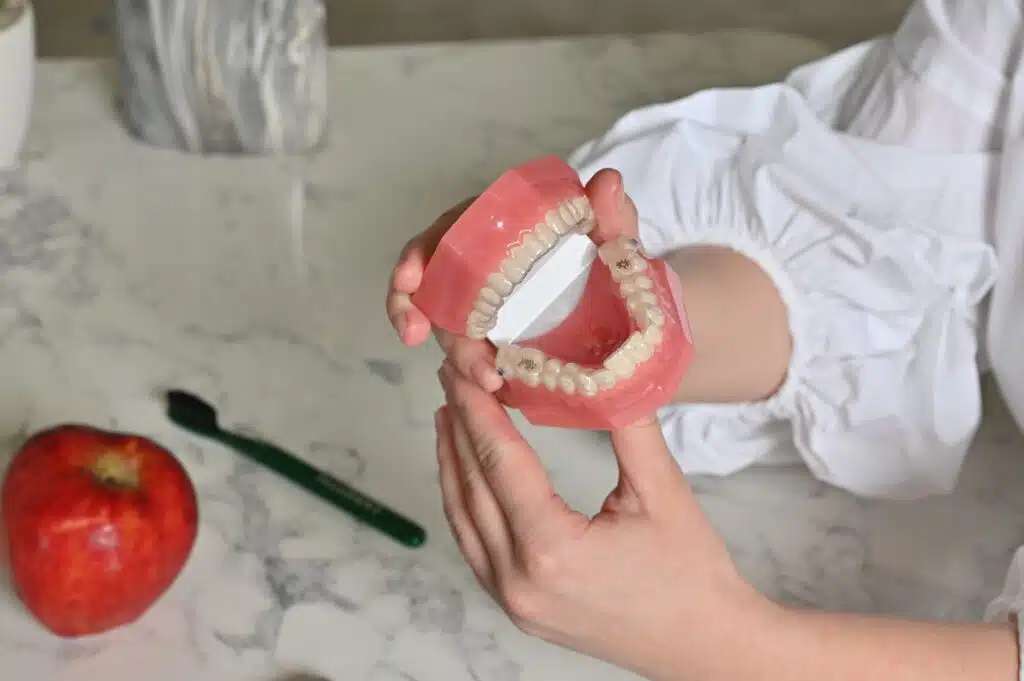The TMJ is one of the most complex joints in the human body. When this joint’s muscles, bones, ligaments, and tendons do not function harmoniously, it causes a complex condition. In addition, the confusing symptoms of TMJ disorder can make it challenging to decide what kind of healthcare provider you need to see for diagnosis and treatment. Continue reading to learn more about who to see for TMJ.
If you have any questions or concerns about jaw pain, schedule an appointment with Trident Dental for a comprehensive oral exam and TMJ evaluation.
What Is TMJ?
Everyone has a TMJ on each side of their head. This joint connects the lower jaw with the upper jaw or skull and is found directly in front of each ear. However, most often, “TMJ” stands for a painful dysfunction of this joint. TMJ affects approximately twelve percent of people in the United States. In addition, this painful and potentially debilitating condition affects nine women to every one man with severe symptoms.
What Are The Symptoms of TMJ?
You can experience a wide range of symptoms with TMJ that range from mild to severe. Occasionally the symptoms are confusing and seem unrelated to the jaws. The possible symptoms include:
-
Jaw pain. You can feel pain anywhere in the jaw or at the lower jaw and the skull connection.
-
Ear pain. Because of the ear’s proximity, you can mistake TMJ pain for an earache.
-
Tooth pain. TMJ dysfunction causes teeth grinding or clenching. This can lead to sensitive or painful teeth.
-
Broken teeth. The stress placed on teeth can cause them to fracture or break.
-
Impaired jaw movement. The affected TMJ can cause your jaw to lock open or closed.
-
Headaches. Pain in the temple area of the head is a common symptom of TMJ.
-
Popping or clicking noises. You may notice a popping or clicking noise when you open or close your mouth.
-
Chewing difficulty. Painful and tight jaw muscles hinder proper chewing.
Why See A Dentist For TMJ?
Dentists often serve as the starting point for mouth, head, and neck conditions. Their training in the anatomy of the head and neck and their specialized training in treating teeth and gums uniquely positions dentists to offer significant help in treating TMJ. In most cases of TMJ, the teeth are susceptible to considerable damage. Therefore, they must be protected and treated early to prevent tooth loss. Dentists also provide night and mouth guards, which are common conservative TMJ treatments.
Other Doctors You May Need For TMJ
Depending on the complexity and severity of your symptoms, you may need a team of healthcare providers that might include:
-
Your dentist
-
Oral surgeon
-
Neurologist
-
Ear, nose, and throat specialist (ENT)
-
Pain specialist
-
Physical therapist
-
Rheumatologist
Schedule Appointment
Contact us at Trident Dental to learn how we can help you with any questions or problems you might experience with jaw pain or other possible symptoms of temporomandibular disorder. We offer various treatments to help alleviate your symptoms, including custom-made mouth and night guards.

